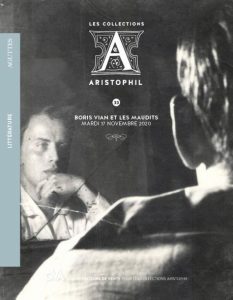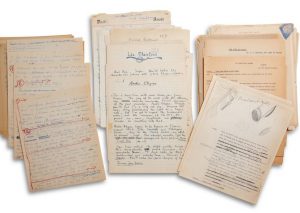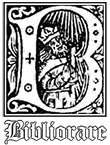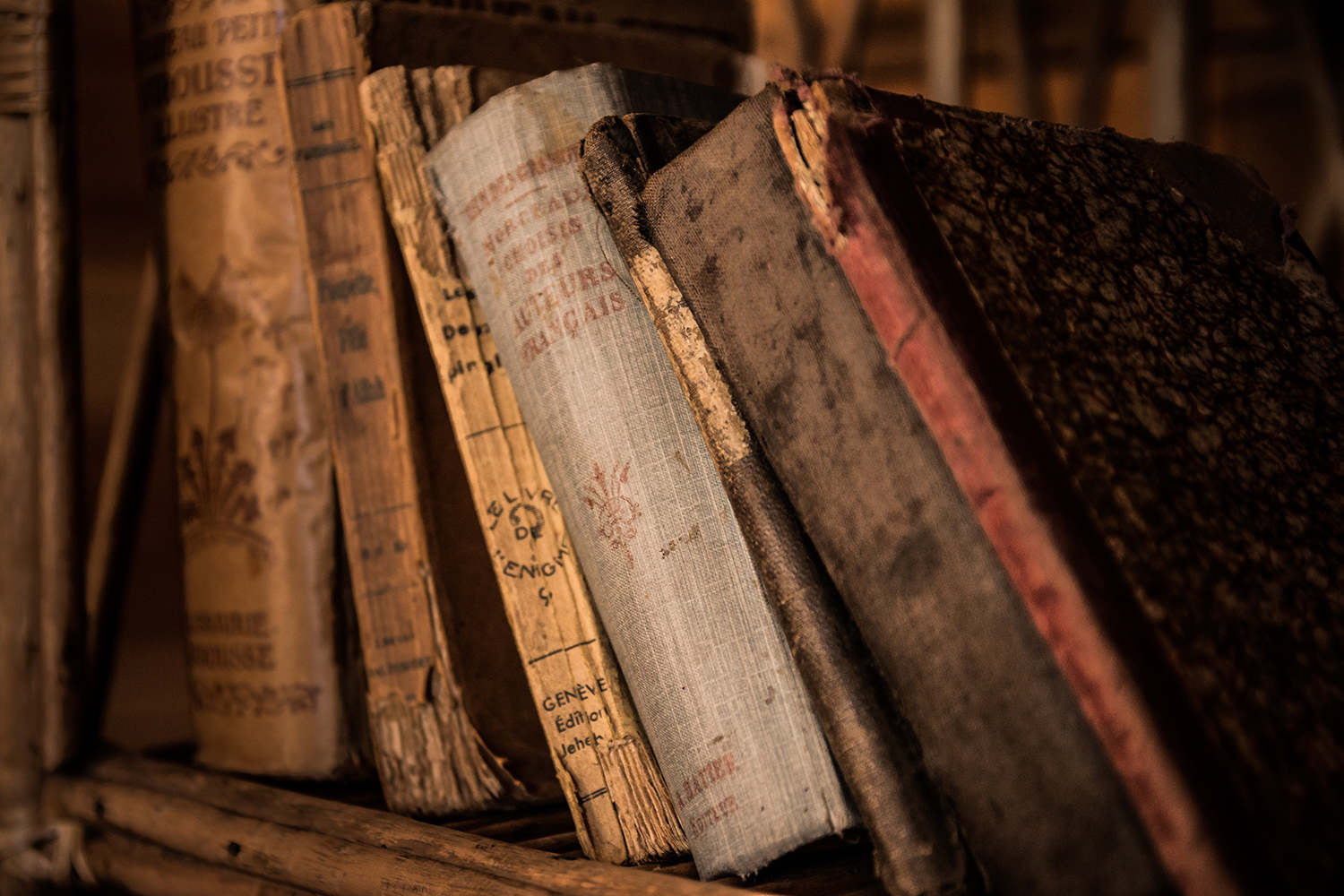VIAN Boris —[Jazz in Paris], manuscrit autographe et tapuscrit corrigé [1948-1949] : 82 pages sur 48 feuillets in-4 ou in-folio : et 113 pages dactylographiées in-4 : en anglais (les 6 premières pages en français).
Description
* un dactylogramme de 43 émissions, parfois aussi en double version, corrigé de la main de Vian ou de son collaborateur américain Ned Brandt.Dossier intégral des écrits de Vian pour ses interventions radiophoniques sur le jazz français pour la chaîne de radio américaine National Public Radio WNEW basée à New York, d'avril 1948 à juillet 1949.
Les 45 émissions préparées par Vian ont été enregistrées par la Radiodiffusion française pour être retransmises aux États-Unis, mais aucune trace n'a été conservée dans les archives de Radio-France ni de WNEW.
Les textes ont été écrits directement en anglais (seul le brouillon de la toute première émission est en français), dans un style pittoresque et personnel : «Vian's English» note Ned Brandt, collaborateur américain de Vian qui est intervenu parfois dans les corrections des dactylogrammes.
Le titre général de ces émissions a varié : d'abord Hot Club de Paris, puis Hot Music from Paris, puis à partir de la 9e Hot Music from France. Ce cycle d'émissions devait présenter aux auditeurs de WNEW le jazz créé et enregistré en France dans les années trente et quarante.
Dans son commentaire, Boris Vian insère les titres des musiques qu'il fait entendre. Ces chroniques ont été publiées sous le titre Jazz in Paris, présenté et traduit par Gilbert Pestureau (Pauvert, 1997).
Manuscrits : [1] en français, sans titre (6 ff) : «La Radiodiffusion française présente Hot Club de Paris, un programme hebdomadaire retraçant l'histoire et les moments importants du jazz français, avec le concours des musiciens français les plus célèbres. Ce programme est composé pour vous par l'écrivain musicien de jazz Boris Vian. Indicatif en fond - et mélanger avec The Man in the moon de Gregor. Né à la Nouvelle-Orléans, le jazz gagna peu à peu une place de premier plan aux Etats-Unis vers le début des années 20, et comme l'Océan Atlantique est très large, il fallut attendre 1930 avant que ses échos ne réveillent l'Europe, et Paris... [...] 1935. Le vrai jazz commence à s'imposer en France. Les critiques s'intéressent à lui et la première revue de jazz, Jazz Hot, vient de paraître. Le public paraît s'y intéresser. Louis Armstrong a joué à Paris, Duke Ellington aussi. [...] Et maintenant, vous avez entendu tous les grands noms du jazz français de l'époque : Philippe Brun, Combelle, Ekyan et Django.
Les trois derniers se retrouvèrent en 1936 devant un micro avec Coleman Hawkins et Benny Carter et ce fut l'occasion d'une séance d'enregistrement qui fit date dans l'histoire : quatre saxos... Ecoutez ça»... [2] Philippe Brun : manuscrit en anglais (3 ff), un dessin, tapuscrit corrigé en français (2 ff), et tapuscrit en anglais (3 ff).
Suivent les manuscrits en anglais (la plupart de 2 pages chaque d'un feuillet in-4 recto-verso) :
N° 5 André Ekyan (3 p.).
N° 6 Léo Chauliac (2 versions, 3 et 3 p.).
N° 7 Hubert Rostaing.
N° 8 Aimé Barelli (3 p.).
N° 9 Quintett of the H.C.F.
N° 10 Claude Luter.
N° 11 Jack Dieval.
N° 12 Michel de Villers (en-tête École centrale des arts et manufactures).
N° 13 Hubert Fol.
N° 16 Claude Bolling.
N° 17 Jack Dieval.
N° 18 Tony Proteau.
N° 19 Eddie Bernard.
N° 20 Gustave Viseur (en-tête Office professionnel des industries et des commerces du papier et du carton).
N° 21 Chico Cristobal (id.).
N° 22 College Rythm (id.).
N° 23 Barelli (id.).
N° 25 Be-bop minstrels.
N° 26 Hubert Rostaing Trio. N
° 27 Jerry Mengo.
N° 28 Émile Stern.
N° 29 Django-Luter.
N° 30 Don Byas.
N° 31 Tyree Glenn.
N° 32 Bill Coleman.
N° 33 Don Byas.
N° 34 Freddie Johnson (sur papier d'un registre comptable).
N° 35 Dicky Wells (id.).
N° 38 Sidney Bechet.
N° 39 Don Byas.
N° 40 Rostaing-Peiffer.
N° 41 Bill Coleman.
N° 42 Claude Bolling.
N° 43 Pierre Braslavsky.
N° 44 Hubert Rostaing.
N° 45 Claude Luter. Nous en citons le début de ce N°45 :
«This is Boris Vian saying Bonjour from Paris and bringing you another series of French jazz sessions. Today, we will go far back in the old times with Claude Luter and his New Orleans Gang. You already know Luter, of course, if you're jazz fans : and if not, you sure heard about New Orleans style, originated down the Mason Dixon Line and illustrated by such performers as King Oliver, Fred Keppard, and so on. Luter and his boys have tried to recapture the spirit and enthusiasm of this former generation of jazz pioneers. In fact, they have partly succeeded in spite of minor imperfections : but let's listen to Old School by Claude Luter»... Et Vian termine : «Moustache Stomp, by Claude Luter, ends today's program of old time jazz. And we'll be back again with you soon for another quarter of an hour with French jazz fans. Till then, this is Boris Vian saying Au revoir et à bientôt».
Le tapuscrit comprend les émissions 3 (Quintet Hot Club de France) à 5, 7 à 13, 14 (André Persiany), 15 (Hubert Rostaing), 16 à 23, 24 (Claude Luter) à 26, 27 à 29 (en 2 versions), 30 à 35, 36 (Claude Bolling), 37 (Eddie South-Stéphane Grappelly), 38 à 45.
Jazz in Paris], autograph manuscript and corrected typescript [1948-1949] : 82 pages on 48 in-4 or in-folio pages : and 113 typewritten in-4 pages : in English (the first 6 pages in French). A complete set of Boris Vian's 45 chronicles of Jazz in Paris for the American radio station WNEW. It includes two sets : * the autograph manuscript of 38 broadcasts (the first one in French), sometimes offering two versions of the same, several pages on letterheads from the Ecole Centrale des Arts et Manufactures, then from the Office professionnel des industries et des commerces du papier et du carton, with numerous erasures and corrections, and sometimes drawings in the margins : * a typing of 43 broadcasts, sometimes also in double version, corrected by the hand of Vian or his American collaborator Ned Brandt.a complete file of Vian's writings for his radio interventions on French jazz for the American National Public Radio WNEW based in New York, from April 1948 to July 1949. The 45 programmes prepared by Vian were recorded by the French Broadcasting Corporation for broadcast in the United States, but no trace was kept in the archives of either Radio-France or WNEW. The texts were written directly in English (only the draft of the very first broadcast is in French), in a picturesque and personal style: "Vian's English" notes Ned Brandt, Vian's American collaborator who sometimes intervened in the corrections of the typing.The general title of these programmes varied: first Hot Club de Paris, then Hot Music from Paris, then from the 9th Hot Music from France. This series of programmes was intended to introduce WNEW listeners to jazz created and recorded in France in the thirties and forties. In his commentary, Boris Vian inserts the titles of the music he plays. These columns were published under the title Jazz in Paris, presented and translated by Gilbert Pestureau (Pauvert, 1997). Manuscripts : 1] in French, untitled (6 ff): "La Radiodiffusion française présente Hot Club de Paris, a weekly programme retracing the history and important moments of French jazz, with the help of the most famous French musicians. This programme is composed for you by the writer and jazz musician Boris Vian. Indicative in the background - and mix with Gregor's The Man in the moon. Born in New Orleans, jazz gradually gained a prominent place in the United States around the beginning of the 1920s, and as the Atlantic Ocean is very wide, it was not until 1930 that its echoes woke Europe, and Paris. [...] 1935. Real jazz began to make its mark in France. The critics are interested in it and the first jazz magazine, Jazz Hot, has just been published. The public seems to be interested in it. Louis Armstrong played in Paris, as did Duke Ellington. [...] And now you've heard all the great names of French jazz at the time: Philippe Brun, Combelle, Ekyan and Django. The last three of them met in 1936 in front of a microphone with Coleman Hawkins and Benny Carter and it was the occasion of a recording session that made history: four saxophones... Listen to this"... 2] Philippe Brun: manuscript in English (3 ff), a drawing, typescript corrected in French (2 ff), and typescript in English (3 ff). The manuscripts in English follow (most of 2 pages each of an in-4 recto-verso page): N° 5 André Ekyan (3 p.). N° 6 Léo Chauliac (2 versions, 3 and 3 p.). No. 7 Hubert Rostaing. No. 8 Aimé Barelli (3 p.). No. 9 Quintett of the H.C.F. No. 10 Claude Luter. No. 11 Jack Dieval. No. 12 Michel de Villers (heading École centrale des arts et manufactures). No. 13 Hubert Fol. No. 16 Claude Bolling. No. 17 Jack Dieval. No. 18 Tony Proteau. No. 19 Eddie Bernard. No. 20 Gustave Viseur (headed Office professionnel des industries et des commerces du papier et du carton). No. 21 Chico Cristobal (id.). No. 22 College Rythm (id.). No. 23 Barelli (id.). No. 25 Be-bop minstrels. No. 26 Hubert Rostaing Trio. No. 27 Jerry Mengo. No. 28 Émile Stern. No. 29 Django-Luter. No. 30 Don Byas. No. 31 Tyree Glenn. No. 32 Bill Coleman. No. 33 Don Byas. No. 34 Freddie Johnson (on bookkeeping paper). No. 35 Dicky Wells (id.). No. 38 Sidney Bechet. No. 39 Don Byas. No. 40 Rostaing-Peiffer. No. 41 Bill Coleman. No. 42 Claude Bolling. No. 43 Pierre Braslavsky. No. 44 Hubert Rostaing. N° 45 Claude Luter. We quote the beginning of this N°45: "This is Boris Vian saying Bonjour from Paris and bringing you another series of French jazz sessions. Today, we will go far back in the old times with Claude Luter and his New Orleans Gang. You already know Luter, of course, if you're jazz fans : and if not, you sure heard about New Orleans style, originated down the Mason Dixon Line and illustrated by such performers as King Oliver, Fred Keppard, and so on. Luter and his boys have tried to recapture the spirit and enthusiasm of this former generation of jazz pioneers. In fact, they have partly succeeded in spite of minor imperfections: but let's listen to Old School by Claude Luter"... And Vian ends: "Moustache Stomp, by Claude Luter, ends today's program of old time jazz. And we'll be back again with you soon for another quarter of an hour with French jazz fans. Till then, this is Boris Vian saying Au revoir et à bientôt". The typescript includes programs 3 (Quintet Hot Club de France) to 5, 7 to 13, 14 (André Persiany), 15 (Hubert Rostaing), 16 to 23, 24 (Claude Luter) to 26, 27 to 29 (in 2 versions), 30 to 35, 36 (Claude Bolling), 37 (Eddie South-Stéphane Grappelly), 38 to 45.




